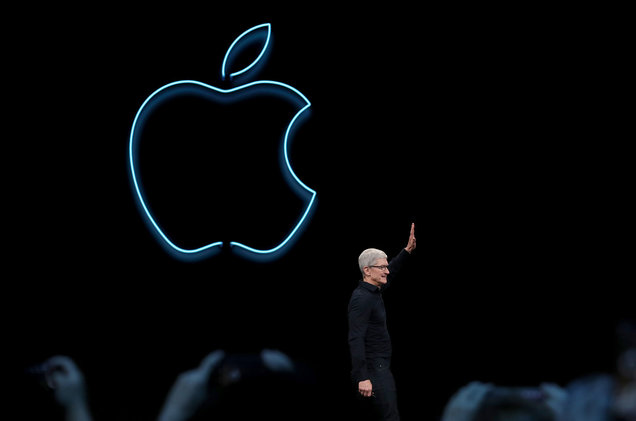Eighteen years after it was released, Apple is ready to retire iTunes. Apple is launching a new Apple Music app for Mac, the company announced at its Worldwide Developers Conference in San Jose, Calif. today, confirming news widely reported last week. Apple will continue to operate iTunes Music Store in the Finder on Mac, and the company tells Billboard the iTunes app will continue to exist on Windows.
Apple is breaking apart the features that made iTunes a bloated pain to use for years -- podcasts, TV shows, and movies -- and creating new, and hopefully faster, individual apps. The standalone Apple Music app will be joined by a new Podcasts app and a TV app, mirroring Apple’s strategy on its mobile, iOS devices. All three apps will launch in the next version of Mac OS, named “Catalina," which will be released later this fall.
The company is also bringing real-time song lyrics to Apple Music on iOS and Apple TV that will scroll as the song progresses. tvOS will also gain multi-user support, allowing each user in a home to access their Apple Music libraries and preferences with a click. Real-time lyrics will be available in Apple Music in the next versions of iOS and tvOS later this year. Siri is gaining the ability to stream live radio in iOS 13, with 100,000 stations available from iHeartRadio, TuneIn and Radio.com. Users on iOS 13 will also be able to share audio between devices, allowing two people to listen to the same song or audiobook simultaneously.
The new Apple Music app will support many of the features that once made iTunes great -- the app was reportedly built using some of the same code from iTunes -- including library management and smart playlists. Apple is moving device management for iPhones and iPods into Finder on the Mac. The Apple Music app will also support all of the features Apple Music subscribers are familiar with, like the “For You” section, which features a small selection of personalized playlists, and Beats 1 radio. And without all of the clutter that slowly turned iTunes from the de facto music app in the 2000s into a slow, outdated app this decade, the new Music app will likely be a notable improvement across the board.
This shift marks the end of the iTunes era, a period that redefined both the music and tech industries and helped usher in the smartphone era. iTunes not only reshaped how the world consumed music, it also changed the landscape of digital movie rentals and purchases, controlling well over 50 percent of the U.S. market share in that industry until 2012, according to The Wall Street Journal.
For nearly 10 years, Apple essentially had control over both digital music and digital video, a feat that will likely go unmatched by a single service. "Until there was iTunes, there was no legitimate market [for digital music] at scale," Larry Miller, director of the Music Business program at NYU-Steinhardt, tells Billboard. "It’s hard to imagine one distributor being so dominant that they will approach the scale that Apple enjoyed for over a decade." But since that time, Apple has been surpassed in market-share dominance in film and TV by Netflix, and in music by Spotify, thanks to the rise of streaming.
Despite its historic significance, the shift away from the iTunes brand is long overdue, and should have begun when the company launched Apple Music back in 2015. Apple’s next challenge will be competing with Netflix, HBO, and Hulu in the streaming video market, and continuing its fight against Spotify for market share across the globe in music, and likely in podcasts, as Spotify bolsters its efforts to usurp Apple as the leader in that market. Services are the new focus for Apple, as iPhone sales continue to taper off, making the move to split up iTunes and deliver quality desktop apps more imperative than ever. But even if Apple is somehow successful in beating all of its challengers, we’ll never see another service dominate like iTunes once did.
This article was originally published at Billboard.






